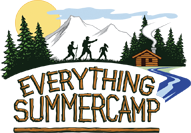Hey, Camp Kids!
Who says that growing up has to be boring? You don’t have to give up your summers at camp just because you’re over eighteen. It’s probably easier than you think to transition from summer camper to camp counselor. You’ve probably already learned many of the skills that you need just by attending camp every summer. You’ll also love the newfound freedom paired with the brand new responsibilities that you’ll have as a counselor. So why give up your annual trip to camp when you can go and continue to grow as a leader and as a person?
The Experience You Already Have
Chances are, if you’re interested in becoming a camp counselor, it’s because you've spent many summers as a summer camper. If this is true, then you’ve probably already learned many of the skills that you’ll need to have as a counselor. Leadership is a skill that is often taught through many of the games that kids play at summer camp. Campers are also encouraged to work together and solve problems as a team, which means that you already have a good foundation in teamwork and problem-solving. Finally, you already have a good idea of how the camp where you’ll be working is run. You’ll be looking at things from a different perspective, of course, but your time as a camper undoubtedly gave you most of the experience you need for a camp counselor job.
A Fun Summer Job
Many jobs and internships that college students take on during the summer can be boring and ultimately unfulfilling. Skip the boring jobs that some of your peers might get and go back to your favorite summer spot. As a camp counselor, you’ll spend your summer playing games and interacting with a new round of young campers while earning some spending cash. Nothing can be better than having a job that requires you to spend hours playing every day. Even though it won’t be all fun and games, as you’ll have more responsibilities as a counselor, you’ll have so much fun and freedom that it won’t feel like work at all. Plus, you’ll be able to add your new leadership experience to your resume.
As always, thanks for reading, Camp Fans!
- John







